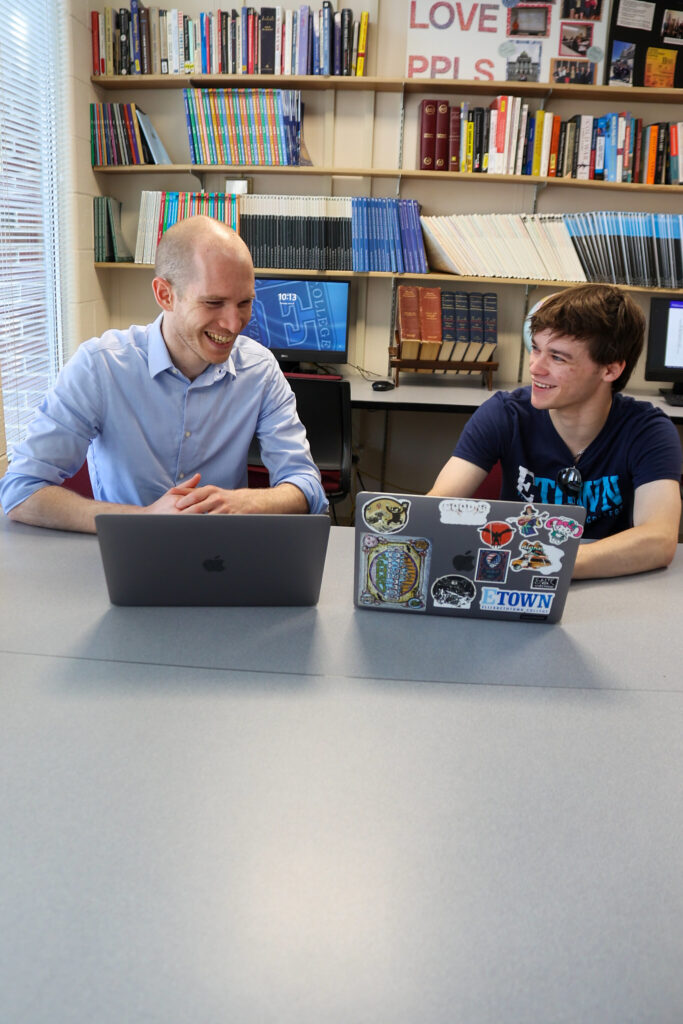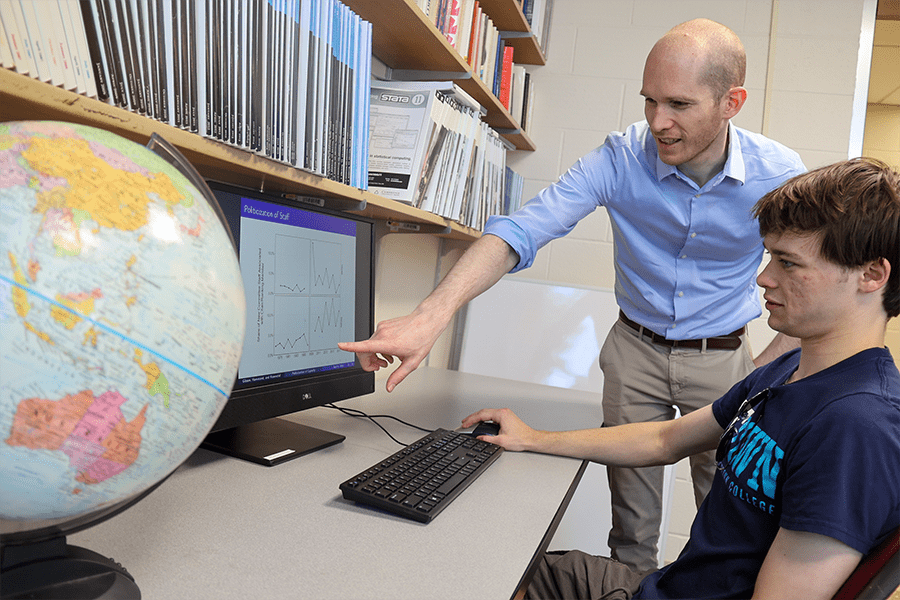Political Science major Patrick Snyder ’26 is taking a deep dive this summer, examining U.S. congressional staff members from 1977 to 2023 to assess and analyze their experience levels when taking office.
Snyder is working alongside faculty mentor and Assistant Professor of Political Science Nathan Gibson as part of the Summer Creative Arts and Research Program (SCARP) to collect and enter over 400,000 data entries into opensource software “R” to track trends based on how long congressional staff members have been in office, how long they have stayed in the same position, and the amount of policy change that has taken place. With the research, Snyder is aiming to better understand the true policymaking capabilities of Congress, and create a resource for future research.
Title of Research
Policymaking Capacity in the United States Congress 1977-2023
Student Researcher
Patrick Snyder ’26 (Political Science major)
Faculty Mentor
Nathan Gibson, Assistant Professor of Political Science
What are you researching?
Snyder: Dr. Gibson and I are cleaning the data we will soon use in the analysis portion of the project. This cleaning entails that scans of our data source, and phonebook directories are prepared for manipulation and study with software. As we progress with the project, the focus will primarily switch to analyzing the data and seeing how the outcomes affect big-picture ideas.
Why did you choose this topic?
Snyder: Dr. Gibson presented the idea of statistically analyzing turnover rates among Congressional staffers and possibly comparing these findings to other variables. I found this topic interesting, and it was a perfect opportunity to practice using the software R.
What was the most interesting aspect of this research?
Snyder: I am looking forward to seeing whether the variables we study are deemed significant or not following the analysis. Either outcome opens the door to more questions and could propel me into further research. The results will also have an impact on our understanding of how Congress functions with its staffers.
What are you hoping to accomplish through this research project?
Snyder: I hope the experience I gain from trying new data cleaning methods and significance testing will make future projects more surmountable. Familiarizing myself with these skills will hopefully make Data Analytics-focused classes easier.
Talk about working with your mentor. How have they helped you throughout this experience?
Snyder: Dr. Gibson is great at communicating what needs to be done next. He has been reliably open to questions and even goes the extra mile to send tips and tricks he has picked up. Throughout the process of the SCARP application, preparation, and implementation, Dr. Gibson has offered useful guidance, as well as provided opportunities for me to learn.
Hear from the faculty mentor — Nathan Gibson
“Patrick has been great to work with. He is self-motivated and conscientious, which makes it easy for me. Research can be quite arduous at times, and Patrick always shows up with a positive attitude.”

